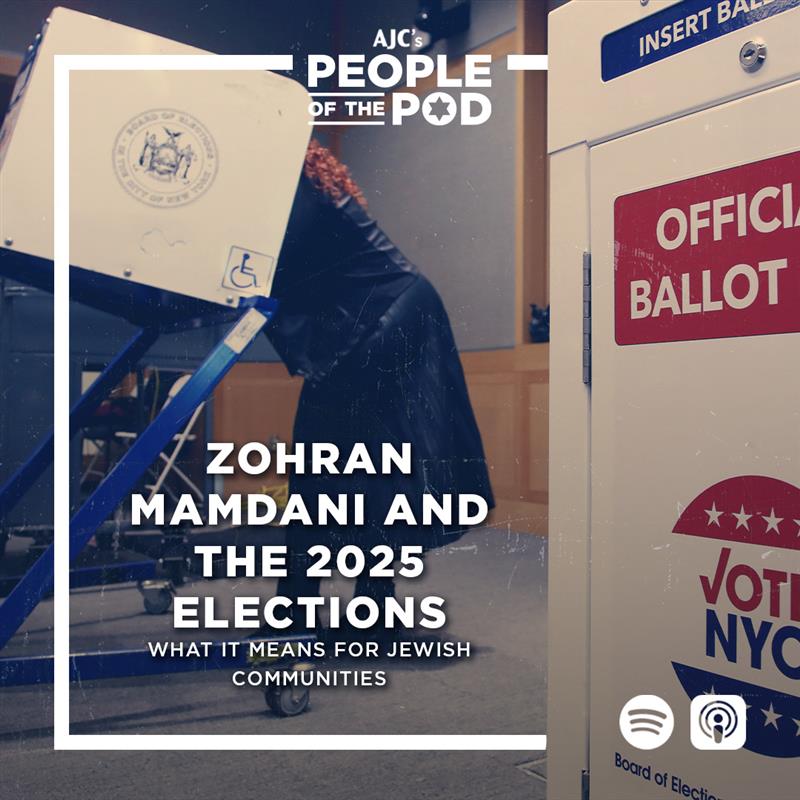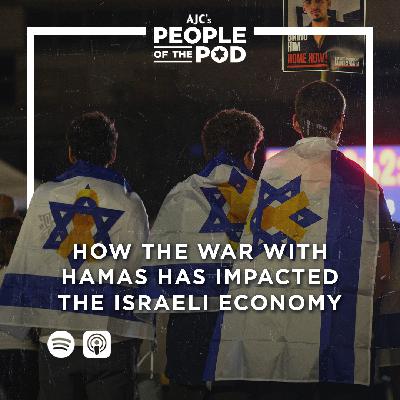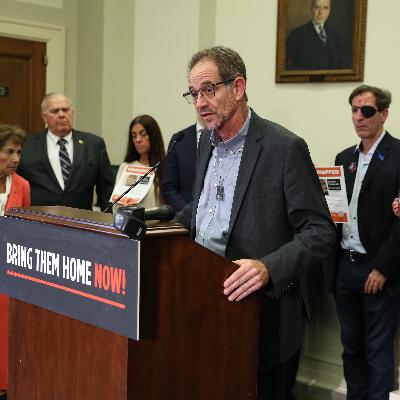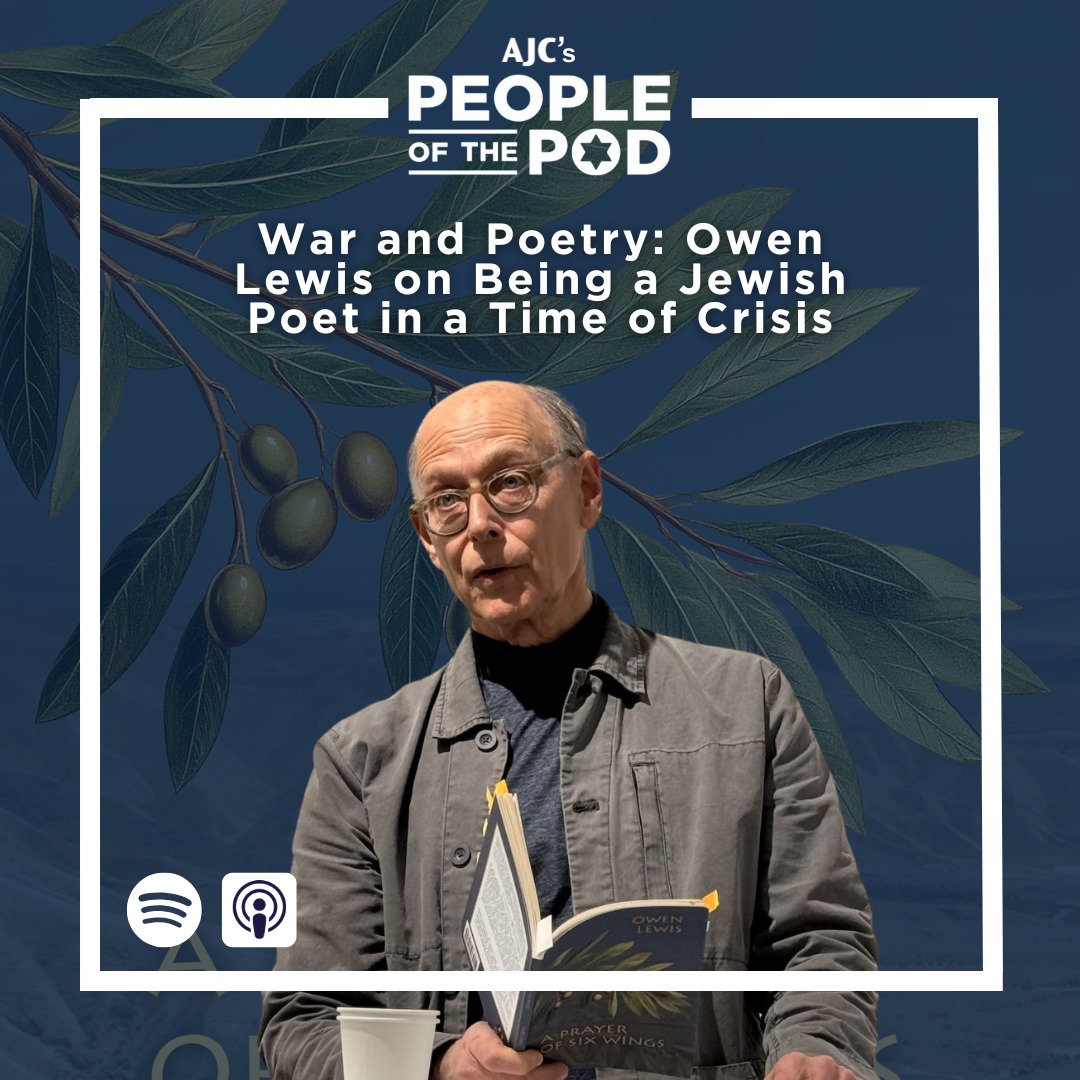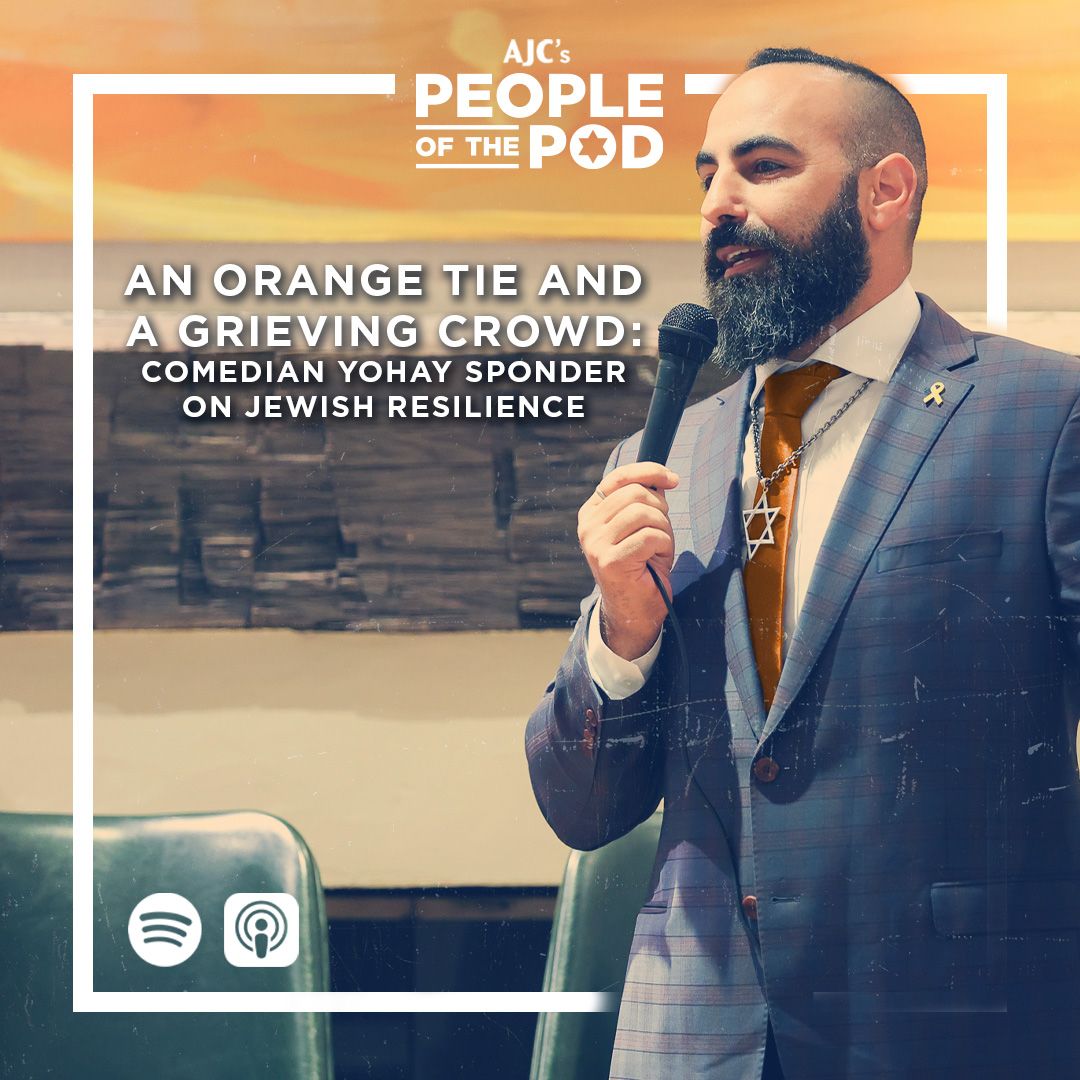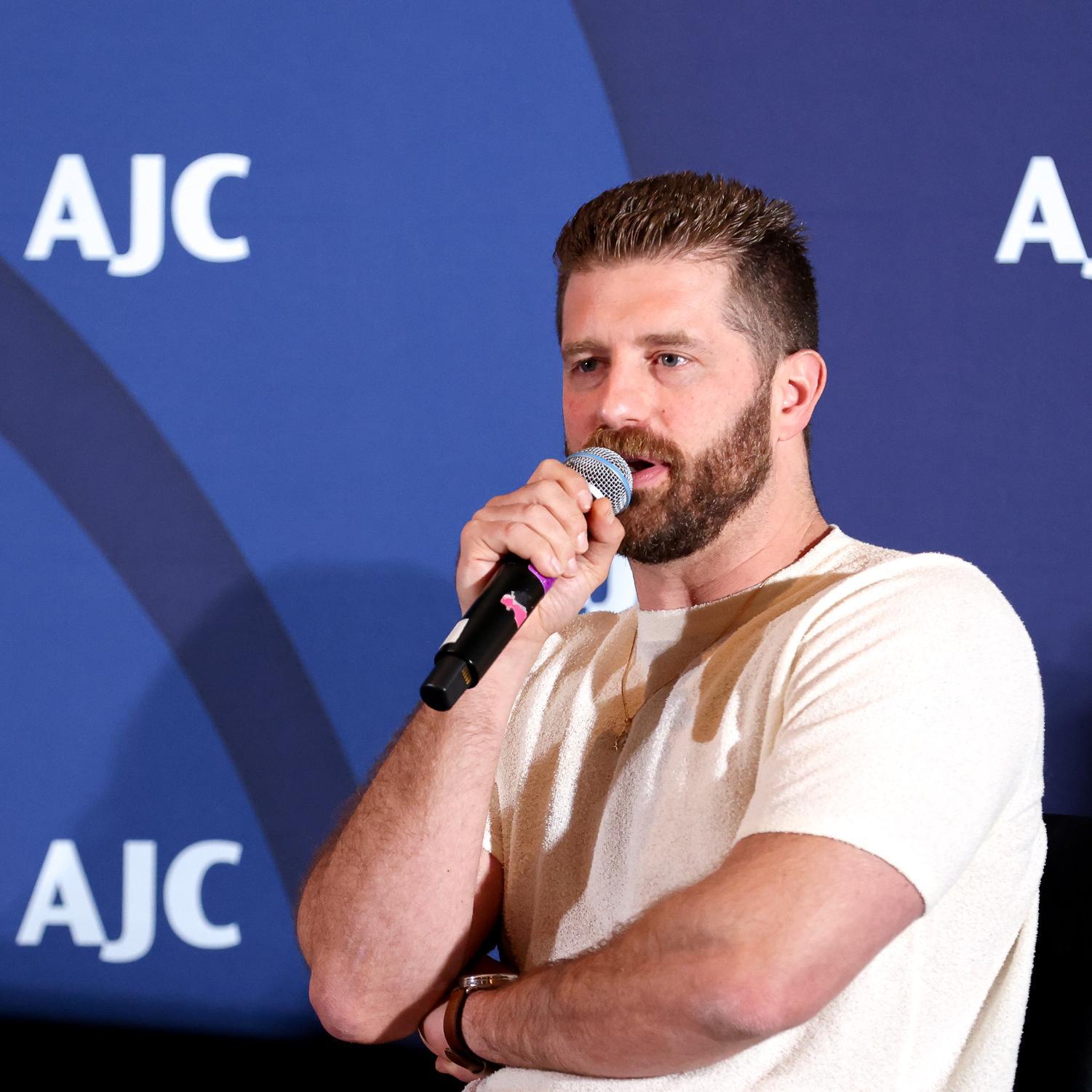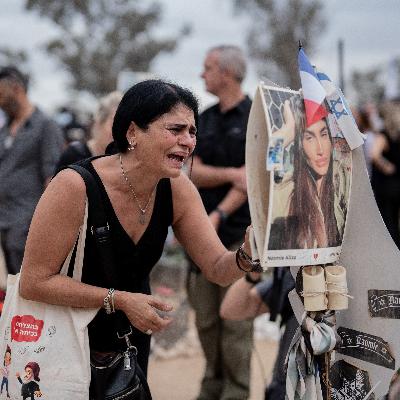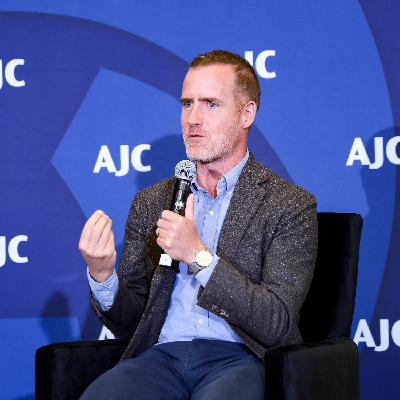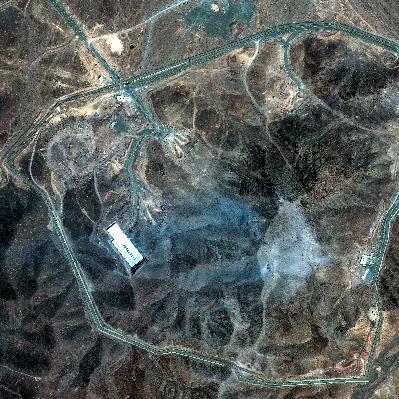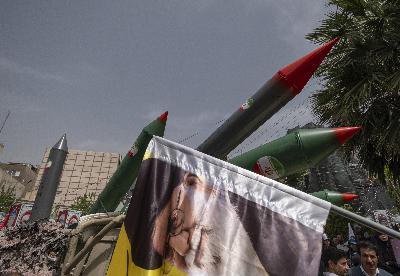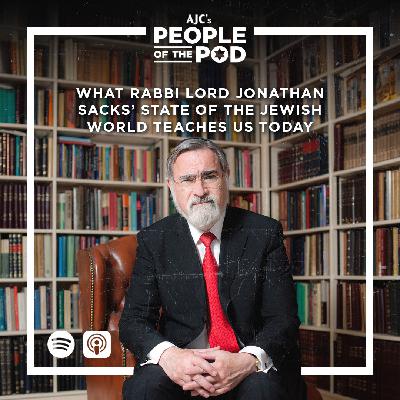Architects of Peace: Episode 5 - Accords of Tomorrow
Description
On the sidelines of the UN General Assembly, AJC hosted a conversation with Jason Greenblatt, a key architect of the Abraham Accords, and former U.S. Ambassador to Israel Dan Shapiro. They discussed the challenges threatening regional stability, from unilateral moves on Palestinian statehood to political pressures within Israel, and underscored what's at stake—and what it will take—to expand the Abraham Accords and advance peace.
*The views and opinions expressed by guests do not necessarily reflect the views or position of AJC.
Episode lineup:
Dan Shapiro (1:00 )
Jason Greenblatt (18:05 )
Full transcript: https://www.ajc.org/news/podcast/accords-of-tomorrow-architects-of-peace-episode-5
Resources:
-
AJC.org/ArchitectsofPeace - Tune in weekly for new episodes.
-
AJC.org/AbrahamAccords - The Abraham Accords, Explained
-
AJC.org/CNME - Find more on AJC's Center for a New Middle East
Listen – AJC Podcasts:
Follow Architects of Peace on your favorite podcast app, and learn more at AJC.org/ArchitectsofPeace
You can reach us at: podcasts@ajc.org
If you've appreciated this episode, please be sure to tell your friends, and rate and review us on Apple Podcasts or Spotify.
Transcript:
Manya Brachear Pashman:
In September 2020, the world saw what had been years – decades – in the making: landmark peace agreements dubbed the Abraham Accords – normalizing relations between Israel and two Arabian Gulf states, the United Arab Emirates and the Kingdom of Bahrain. Later, in December, they were joined by the Kingdom of Morocco. Five years later, AJC is pulling back the curtain to meet key individuals who built the trust that led to these breakthroughs and turning the spotlight on some of the results. Introducing the Architects of Peace.
On the sidelines of the United Nations General Assembly in September, American Jewish Committee hosted conversations with former Middle East envoy Jason Greenblatt, a key architect of the Abraham Accords, and former U.S. Ambassador to Israel Dan Shapiro:. Both diplomats discussed the dangers threatening peace in the region, including some countries' unilateral calls for Palestinian statehood. They shared what's at stake and what it will take to expand the Abraham Accords and make progress toward peace in the region. We're including those conversations as part of our series. AJC's Chief Strategy and Communications Officer Belle Yoeli starts us off with Ambassador Shapiro.
Belle Yoeli:
Ambassador Shapiro, thank you so much for being with us. We're going to speak primarily about unilateral recognition of Palestinian statehood, but I, of course, want to ask you a couple of questions, because you have so much to share with us before we dive in.
First and foremost, as we've said, It's been almost two years, and at AJC, we're all about optimism and playing the long game, as you know, but it does feel like the challenges for the Jewish community and the state of Israel continue to build. And of course, the war looms very large. What is your analysis of the geopolitical horizon for the war in Gaza.
Dan Shapiro:
First, thanks for having me. Thank you to American Jewish Committee and to Ted and everybody for all you do. Thank you, Ruby [Chen], and the families, for the fellowship that we can share with you in this goal.
I'll just say it very simply, this war needs to end. The hostages need to come home. Hamas needs to be removed from power. And aid needs to surge into Gaza and move forward with a reconstruction of Gaza for Palestinians who prepare to live in peace with Israel. This is something that is overdue and needs to happen. I think there have been a number of missed opportunities along the way. I don't say this in a partisan way. I think President Trump has missed opportunities at the end of the first ceasefire, when the first ceasefire was allowed to expire after the Iran strike, something I strongly supported and felt was exactly the right thing to do. There was an opening to create a narrative to end the war. I think there have been other missed opportunities. And I don't say in a partisan way, because the administration I served in, the Biden administration, we made mistakes and we missed opportunities. So it can be shared. that responsibility.
But what I do think is that there is a new opportunity right now, and we saw it in President Trump's meeting with Arab leaders. It's going to take very significant, deft, and sustained diplomatic effort. He's got a good team, and they need to do the follow through now to hold the Arabs to their commitments on ensuring Hamas is removed from power, on ensuring that there's a security arrangement in Gaza that does not leave Israel vulnerable to any possibility of a renewal of hostilities against it. And of course, to get the hostages released. That's pressure on the Arabs. And of course, he's got a meeting coming up with Prime Minister Netanyahu, and I do think he's going to need to lean on Prime Minister Netanyahu to overcome the resistance that he has to deal with in his cabinet, from those who want to continue the war or who those who rule out any role of any kind for the Palestinian Authority in something that will follow in the day after in Gaza.
So there is a real opportunity here. Once the war is over, then we have an opportunity to get back on the road that we were on. Two years ago at this UN General Assembly, I was serving as the Biden administration's Senior Advisor on regional integration, the first State Department position to hold that, trying to follow through on the excellent work that Jason Greenblatt and Jared Kushner and, of course, President Trump did in the first term in achieving the Abraham Accords. And we were building out the Negev Forum. And in fact, at that UNGA meeting, we had planned the next ministerial meeting of the Negev Forum. It was to take place October 19 in Marrakesh. Obviously, no one ever heard about that summit. It didn't happen. But getting back on the road to strengthening and expanding the Abraham Accords, to getting Saudi Arabia to the table as a country that will normalize relations with Israel, to expanding regional forums like the Negev Forum. Those are all still within reach, but none of them are possible until the war ends, till the hostages are home, till Hamas is removed from power.
Belle Yoeli:
Absolutely. And we look forward to talking more about the day after, in our next segment, in a segment coming up. Ambassador, you just got back from Israel. Can you tell us about your experience, the mood, what's the climate like in Israel? And any insights from your meetings and time that you think should be top of mind for us?
Dan Shapiro:
I think what was top of mind for almost every Israeli I spoke to was the hostages. I spent time in the hostage square in Tel Aviv, spent time with Ruby, spent time with other hostage families, and everywhere you go as everybody who spin their nose, you see the signs, you hear the anxiety. And it's getting deeper because of the time that people are worried is slipping away for, especially for those who are still alive, but for all of those hostages to be returned to their families, so deep, deep anxiety about it, and candidly, some anger, I think we just heard a little bit of it toward a government that they're not sure shares that as the highest priority. There's a lot of exhaustion. People are tired of multiple rounds of reserve duty, hundreds of days. Families stressed by that as well the concern that this could drag on with the new operation well into next year. It's allowed to continue.
It's a lot of worry about Israel's increased isolation, and of course, that's part of the subject. We'll discuss how countries who have been friends of Israel, whether in the region or in Europe or elsewhere, are responding in more and more negative ways, and Israel, and all Israelis, even in their personal lives, are feeling that pinch. But there's also some, I guess, expectant hope that President Trump, who is popular in Israel, of course, will use his influence and his regional standing, which is quite significant, to put these pieces together. Maybe we're seeing that happening this week. And of course, there's some expectant hope, or at least expectant mood, about an election next year, which will bring about some kind of political change in Israel. No one knows exactly what that will look like, but people are getting ready for that. So Israelis are relentlessly forward, looking even in the depths of some degree of anxiety and despair, and so I was able to feel those glimmers as well.
Belle Yoeli:
And relentlessly resilient, absolutely resilient. And we know that inspires us. Moving back to the piece on diplomatic isolation and the main piece of our conversation, obviously, at AJC, we've been intensely focused on many of the aspects th


